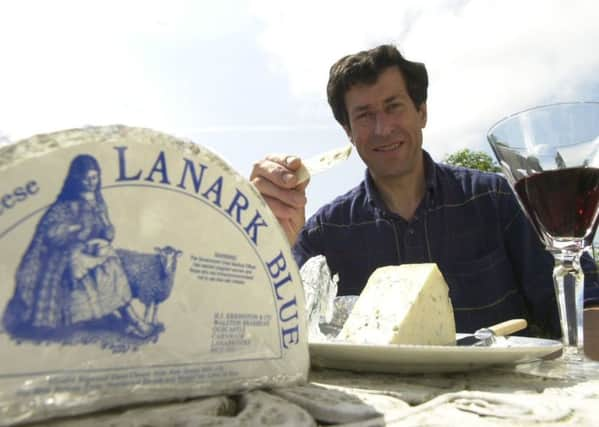Helen Martin: Humphrey has every right to be cheesed off at food scare tales


The first time was in 1994 when authorities claimed the cheese was contaminated with listeria. It took Humphrey a year of court appearances and lab tests to prove it wasn’t – and he won almost £300,000 in compensation from the taxpayer.
This time it’s about a potentially lethal strain of E.coli which led to an “outbreak” affecting 16 people, two of whom wound up in hospital. Health Protection Scotland told the public who had bought the cheese recently that they should take it back to the shop or bin it, and after handling it, be scrupulous about hand hygiene in case they passed on the infection.
Advertisement
Hide AdAdvertisement
Hide AdIt then emerged that out of the 16, only seven might have eaten Dunsyre Blue, while dining out. So the majority of those infected hadn’t been in contact with the product at all.
Once again, Errington’s business and reputation has been damaged without, it would appear, sufficient evidence. The entire artisan cheese industry in this country could be up in arms because many such producers use “raw” milk, as do those in Europe who make Parmesan, Gruyere, Roquefort, Comte and many more gourmet cheeses.
The point about artisan cheeses is that they use fresh milk from specific animals, be they cows or sheep, and their cheese-making process renders the milk safe.
Mass-produced cheese uses milk from hundreds of farms, which may only be collected every two to three days – therefore it has to be pasteurised to be safe.
Advertisement
Hide AdAdvertisement
Hide AdWhy am I remotely bothered about all this? Because my family thrived on unpasteurised milk (from which they made butter and cheese too) for hundreds of years. As a child, I’d stand in the cow shed while my uncle hand-milked six cows – occasionally shooting a jet straight from the udder into my mouth. Most of it was collected an hour or so later and taken to the local creamery, but I would take one pail to my granny. She strained it through muslin and left it in a cool room covered with a cloth to prevent flies getting at it. We drank it within two days, apart from a couple of pints which were left to sour and used to make soda bread. It was the best milk I’ve ever tasted.
Add to that the eggs straight from the hen shed, the veg from the field and the black pudding granny made in a bucket, and everything was organic, fresh or “artisan”.
Our carton milk today is pasteurised because it’s not “fresh” in the truest sense of the word. It can’t be, given our urban way of life, the distances it has to travel and the required shelf life.
Producers like Errington are part of Scotland’s increasingly famous and high-quality food industry expected to bring in £16.5 billion next year and possibly replace oil as our top earner.
Of course our health has to be protected and we rely on HPS and environmental health.
But government agencies should have firm evidence before they shoot from the hip and damage lives and businesses.